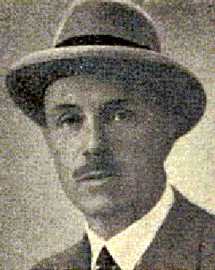Sándor Festetics facts for kids
Quick facts for kids
Count Sándor Festetics de Tolna
|
|
|---|---|
 |
|
| Born |
Sándor Ágost Dénes Festetics de Tolna
31 May 1882 Dég, Fejér, Hungary
|
| Died | 12 September 1956 (aged 74) Balatonrendes near Lake Balaton, Veszprém, Hungary
|
| Citizenship | Hungarian |
| Known for | Politician |
| Title | Minister of War |
| Term | 1918–1919 |
| Predecessor | Albert Bartha |
| Successor | Vilmos Böhm |
| Political party | Hungarian National Socialist Peoples Party |
| Spouse(s) | Countess Júlia Károlyi de Nagykároly |
| Parent(s) | Count Andor Festetics de Tolna Lenke Pejacsevich de Verőcze |
Count Sándor Ágost Dénes Festetics de Tolna (born May 31, 1882 – died September 12, 1956) was an important Hungarian nobleman and government official. He served as a cabinet minister and later became involved with political ideas that were similar to Nazism in Hungary.
Contents
Early Life and Political Start
Sándor Festetics came from a very important family in Hungary. His father, Andor Festetics, was also a well-known figure. Because of his family background, Sándor was chosen to be part of the government led by Mihály Károlyi. In 1918, he became the Minister of Defence. Even though this period was difficult for the country, Festetics remained interested in politics. He later supported another politician named István Bethlen.
Political Views and New Parties
After some time away from politics, Festetics became interested in a political movement called Nazism. In 1933, he took charge of a small group called the Hungarian National Socialist Peoples Party. He used money he inherited from his uncle, Prince Tasziló, to help this party grow.
This party was very similar to the Nazi Party in Germany. It even adopted many of the same ideas and plans. By 1934, Festetics joined forces with other politicians like Zoltán Meskó and Fidél Pálffy. They wanted to combine their groups to become stronger.
However, Festetics was later removed from his leadership role. Some people in the party felt he was not strong enough in his views against Jewish people. This was because Festetics continued to employ Jewish people on his family's lands.
He then worked with smaller political groups led by István Balogh and Kálmán Hubay. He served in the Hungarian Parliament from 1935 until he retired in 1939.
Views on Jewish People and Zionism
Like some other politicians of his time, Festetics thought about how to solve what he called the "Jewish problem" in Europe. He was interested in the idea of Zionism. Zionism is a movement that supports Jewish people having their own homeland, usually in Palestine.
In 1934, Festetics even spoke in Parliament about this. He said that Zionists should be encouraged. He believed that all people, including Jewish people, had a right to live in their own land. He also shared that he had allowed a Zionist group to use his land. They used it to train young Jewish people in farming, helping them prepare to move to Palestine.
Leaving Politics
Count Sándor Festetics ended his political career in 1939. He did not take part in politics during the Second World War. He lived as a private citizen and passed away at his home near Lake Balaton in 1956.
 | Madam C. J. Walker |
 | Janet Emerson Bashen |
 | Annie Turnbo Malone |
 | Maggie L. Walker |

